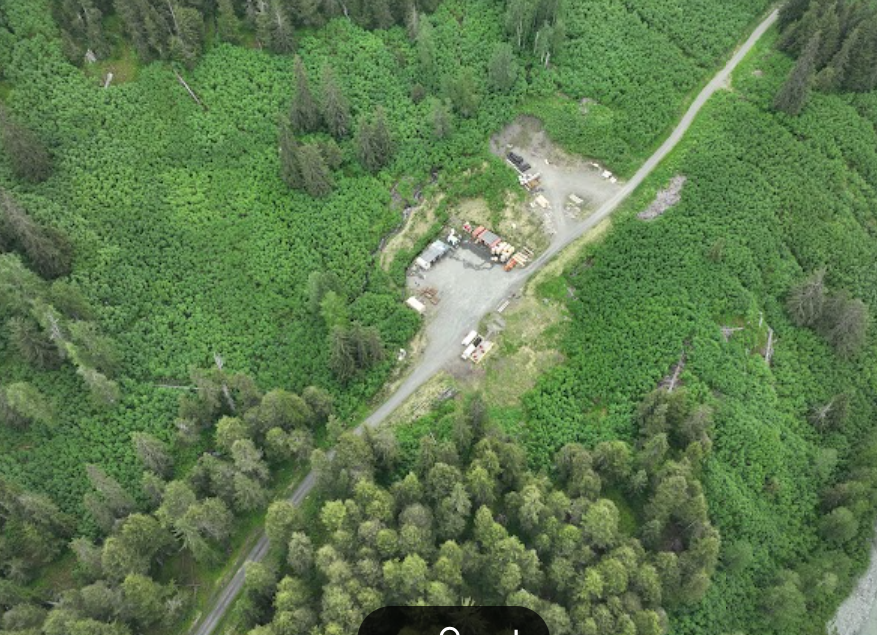
- Details
- By Native News Online Staff
Leaders of the Chilkat Indian Village of Klukwan and the conservation group Chilkat Forever are warning the new owners of the Palmer mine project that they will face “sustained and unyielding opposition” if they pursue hardrock mining in the Chilkat Valley.
The groups said the proposed mine — recently acquired by Vizsla Copper — threatens the Jilḵáat Aani Ḵa Héeni (Chilkat Valley Watershed), a region known for its rich cultural traditions and biodiverse ecosystem, including bald eagles, salmon, moose and bears.
“Whether it’s Vizsla Copper Corporation, American Pacific Mining Corporation, or another operator that owns the Palmer mining project, this industrial hardrock mining development lacks the consent of the Chilkat Indian Village - Klukwan and of many in the broader community,” said Kimberley Strong, president of the Chilkat Indian Village. “It is not only Klukwan that stands to be harmed. Continued hardrock exploration and development at the Palmer mine site poses direct and unacceptable risks to our food security, our way of life in the Chilkat Valley, and the commercial fishing and visitor industries, which form the backbone of our local economy.”
On Nov. 13, Vizsla Copper and American Pacific Mining announced a $15 million share purchase agreement for Vizsla to take over the Palmer project. The deal also includes up to $15 million in additional payments if certain production and resource milestones are met. According to the companies, Vizsla is still seeking $25 million in financing.
The Tlingit village of Klukwan has long opposed the proposed hardrock, acid-generating mine. In 2022, the tribal government adopted an ordinance aimed at protecting the Chilkat River and its tributaries from large-scale mining impacts. Since then, community opposition has grown: more than 800 Alaskans — including nearly 500 of the approximately 2,500 residents of the Chilkat Valley — have signed statements opposing further mine development. The American Bald Eagle Foundation and the National Bald Eagle Center have also voiced opposition.
“The Jilḵáat Kwáan’s mission is still the same. Whatever the situation or circumstances are, we will always stand for and with our way of life — there is no other option,” said Jones Hotch Jr., vice president of the Chilkat Indian Village. “We’ve been living this way since time immemorial and we’re always looking forward to the seventh generation to pass it on.”
Village leaders said their opposition is grounded not in anti-development sentiment but in the need to safeguard a fragile and irreplaceable watershed.
“Our efforts are aimed at protecting what we already have here, not opposing economic growth for the greater Chilkat Valley community,” said David Strong Jr., a tribal council member. “No amount of money can compensate for the kind of destruction and pollution we’ve witnessed from mines across British Columbia and the Yukon.”
The Chilkat Valley is home to the world’s largest seasonal congregation of bald eagles, five species of wild Pacific salmon, 39 species of mammals and more than 260 species of migratory birds. Tribal leaders said that biodiversity — and the traditional food systems and economies it supports — cannot withstand the risks associated with a large-scale hardrock mine.
“Life in this valley is expensive and challenging at times, but if we work together as a unified community, we can find better, safer solutions than a hardrock mine that threatens one of the major arteries of our existence,” Strong said. “Gunalchéesh to those who are standing up to protect our way of life.”
More Stories Like This
Gwich'in Tribal Governments Submit Comments Challenging Fish and Wildlife Service's Inadequate Environmental Review of Arctic Refuge Snow RoadRappahannock Tribe Challenges 9M-Gallon Water Plan
Feds release draft long-term plans for Colorado River management
Apache Leader Walks 60 Miles to Court Hearing That Will Decide Fate of Sacred Oak Flat
Rappahannock Tribe Raises Sovereignty and Environmental Concerns Over Caroline County Water Permit
Help us defend tribal sovereignty.
At Native News Online, our mission is rooted in telling the stories that strengthen sovereignty and uplift Indigenous voices — not just at year’s end, but every single day.
Because of your generosity last year, we were able to keep our reporters on the ground in tribal communities, at national gatherings and in the halls of Congress — covering the issues that matter most to Indian Country: sovereignty, culture, education, health and economic opportunity.
That support sustained us through a tough year in 2025. Now, as we look to the year ahead, we need your help right now to ensure warrior journalism remains strong — reporting that defends tribal sovereignty, amplifies Native truth, and holds power accountable.
 The stakes couldn't be higher. Your support keeps Native voices heard, Native stories told and Native sovereignty defended.
The stakes couldn't be higher. Your support keeps Native voices heard, Native stories told and Native sovereignty defended.
Stand with Warrior Journalism today.
Levi Rickert (Potawatomi), Editor & Publisher

